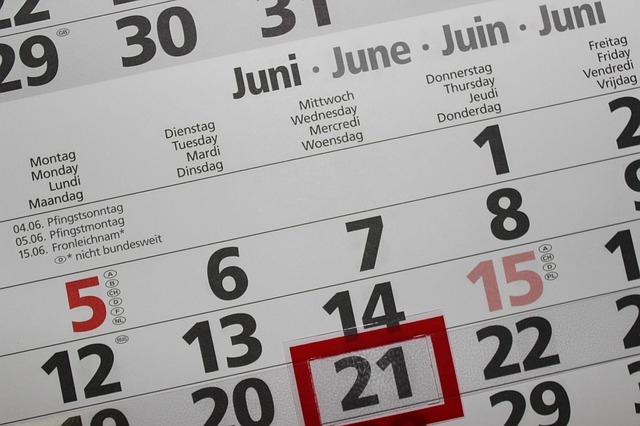
TIME KEEPING SYSTEM
DECEMBER 28, 2021
The Long History Of Calendar System

The long history of calendar system that dates back from the Bronze Age thousand years ago from ancient human civilization to our modern day.
As we approaching the end of 2021, only a few days left to reach the year 2022. But when did this time system begin ? Who invented the calendar system ? We will learn that from this article.
Most ancient societies used nature units to count the time such as the day, the Solar (Sun) and the lunation (Moon). The Sumerian calendar in Mesopotamia was the earliest system, it divided a year into 12 lunar months each consisting of 29 or 30 days. Followed by the Egyptian, Assyrian and Elamite calendars which all date to the Bronze Age in 3100 BC.
The Egyptians invented a year with 365 days divided into three seasons, each of them consisted of four months of 30 days each. So that the 12 months in one year were equal to 360 days plus five extra days as intercalary days.
According to Wikipedia, the term calendars itself is taken from the calends or kalends, the first day of every month in the Roman Calendar. The English word calendar is derived from the Latin calendarium meaning “interest register” or “account book”.
The Roman year initially had ten months which refer to the legendary first king Romulus. He named the first month of a year as Martius, after his own father, Mars, the god of war.
During the Iron Age record a larger number of calendar systems appeared based on the Assyrian and Babylonian calendars. Including the Persian Empire calendar and the Zoroastrian calendar. The oldest calendar in history that still in use is the Jewish calendar. It’s been used since the 9th century BC. This system based on biblical calculations of the creation at 3761 BC.
People’s Republic of China uses the Gregorian calendar for daily purposes but they use a special Chinese calendar for determining festivals. The start of this Chinese calendar can be traced back to the 14th Century BC.

In 45 BC, Julius Caesar introduced his calendar and made January 1 as the start of the year. This calendar was no longer dependent of the new moon but based on a solar year. It simply followed an algorithm of introducing a leap day every four years. This Julian Calendar also moved the beginning of the year from March 1 to January 1.
In 1582, the Gregorian Calendar was introduced and refined the Julian calendar which was widely used across the Europe at the time. This calendar is the most widely used in most of the world today. It was introduced by Pope Gregory XIII in October 1582. He issued the papal bull Inter gravissimas, a calendar reforms for all Catholic Christendom.
The Gregorian system reducing the average year from 365,25 days to 365,2425 days. Since the Roman calendar system miscalculated the length of the solar year by 11 minutes, the calendar had since out of sync with the seasons.
According to various historical and world calendars current year as this article is written, is :
- Gregorian – 2021
- Julian – 2774
- Buddhist – 2563
The reason we have seven days in a week was people observed seven celestial bodies in the sky : Sun, Moon, Mercury, Venus, Mars, Jupiter and Saturn. The international ISO 8601 standard and most of Europe has Monday as the first day of the week. The Babylonians also divided their lunar months into seven-day weeks with the final day of it for religious activities.
related post